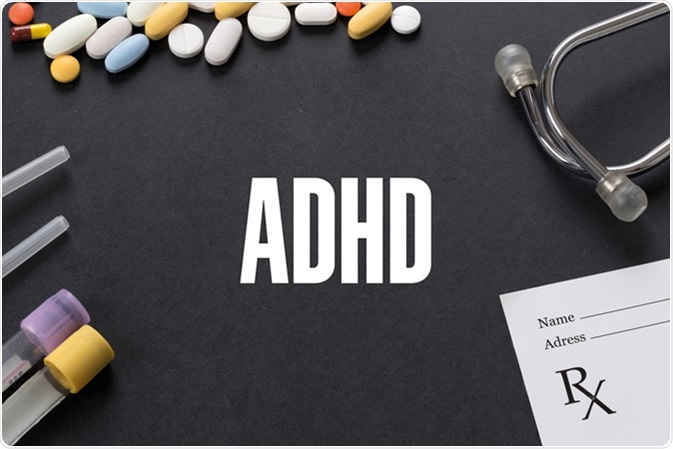Attention Deficit Hyperactivity Disorder (ADHD), is a psychatric disorder commonly diagnosed in children and adolescents who present with symptoms such as an inability to concentrate or repeatedly acting in an impulsive manner. Like other psychiatric disorders, drug treatments can often be prescribed to help manage symptoms. However, some argue that those with ADHD should take a medication break.
Skip to
- What is ADHD?
- Treatment Options for ADHD
- Should you Take a Medication Break?
- To Measure the Effectiveness of the Medication
- Reduction in Side Effects
- Testing Alternative Treatments
- What are the Risks of Taking a Medication Break?

What is ADHD?
Attention deficit hyperactivity disorder (ADHD) is a psychological condition commonly found in school-aged children. Those with the condition will often report periods of inattention, hyperactivity and impulsivity which can adversely affect their ability to engage in educational settings. These symptoms may manifest in behaviors such as constant fidgeting or restlessness, acting in a careless or inconsiderate manner, and being easily distracted. The severity and types of symptoms can vary between genders and from child to child. Some may experience greater periods of inattentiveness and be observed to be daydreaming, whereas others may appear to be more disruptive due to being more hyperactive and impulsive in comparison.
Treatment Options for ADHD
The type of treatment prescribed to those with ADHD will often depend on a range of factors including age of onset and the severity of symptoms. There is a variety of drugs treatments that can be used to manage the symptoms and enable the individual to concentrate more effectively and feel calmer and less impulsive. Some of the most common drugs offered are atomoxetine, dexamfetamine, lisdexamfetamine, guanfacine and methylphenidate.
Certain drugs are required to be taken every day, while others need only to be taken on school days. In addition to drug treatments, those with ADHD might also be required to undergo behavior therapy only or behavior therapy in combination with drug treatment. Some medical professionals argue that medication breaks should be taken in order to establish whether the medication is actually still needed.
Should you Take a Medication Break?
ADHD medication has improved greatly over the years. In most cases, its use will reduce the number of symptoms experienced significantly and any remaining symptoms can be alleviated if coupled with behavioral therapy. Furthermore, it is thought that 90% of children will find one type of ADHD medication that works for them.
Even though drug treatments can be highly effective in reducing symptoms experienced. There may be times where practitioners recommended their use to be stopped. There are several factors that might play a role in influencing whether medication should be stopped.
To Measure the Effectiveness of the Medication
Most ADHD medication needs to be taken for several weeks in order for their effects to be established. However, if the medication has been taken for a length of time and symptoms seem to be quite low and stable, medical practitioners may suggest that the child stops taking the medication to see whether they are still needed. After a period of time, ADHD symptoms may reduce as the individual “outgrows” them or ultimately learns to compensate for their behavior symptoms. This is often seen in cases of hyperactivity.
Furthermore, there may be other signs that individuals could be ready to take a break from their medication. These include:
- The individual has built up the ability to concentrate more effectively;
- There have been no reported symptoms in over a year while on medication;
- Performance continues to increase despite the medication dosage remaining the same;
- Behavior remains appropriate when a few dosages are missed.
Reduction in Side Effects
Research has found that a large proportion of children and adolescents taking ADHD medication experience side effects which can range in severity and require close monitoring. Some of the side effects experienced are:
- Slight increase in heart rate and blood pressure
- Difficulty sleeping
- Reduction in appetite
- Mood fluctuations
- Aggression
- Headaches
- Stomach ache
As ADHD can significantly impair children’s ability to learn and socialize with others, rather than stopping medication due to experiencing side effects, it may be better practice to reduce the dose of the medication, changing the time it is administered, or looking at prescribing alternatives.
Testing Alternative Treatments
Depending on the severity and impairment caused by the symptoms experienced, medical professionals may want to explore alternative treatments. For example, there are a range of therapies that may be just as beneficial as drug treatments. This includes behavior therapy, psychoeducation, social skills training, cognitive behavioral therapy and even parent education and training programs. By taking a break from medication while continuing behavior therapy, it may be easier to see how effective the medication is.
What are the Risks of Taking a Medication Break?
Some practitioners suggest taking a break from medication at the weekends, after school, or during the summer holidays. However, for teenagers, this may prove to be problematic. Research has found that those with ADHD are more likely to engage in risky behavior such as criminal activity, substance misuse and smoking. Therefore, if a teenager was to take a break from their medication for a substantial amount of time, there may be an increased probability of them engaging in such behaviors.
Like medication for any physical and psychological condition, it’s important to consult your doctor before deciding to take a break from ADHD medication. Extra support may be needed to reinforce appropriate behavior and symptoms monitored to ensure there aren’t any lingering symptoms.
Sources
- ADHD: Medication Guide: www.aacap.org/…/adhd_parents_medication_guide_english.pdf
- Attention deficit hyperactivity disorder (ADHD): Overview: https://www.ncbi.nlm.nih.gov/books/NBK321129/
- Treatment: Attention deficit hyperactivity disorder (ADHD): www.nhs.uk/…/
Further Reading
- All Attention Deficit Hyperactivity Disorder (ADHD) Content
- What is Attention Deficit Hyperactivity Disorder?
- ADHD Causes and Risk factors
- ADHD Symptoms
- How do Doctors Test for ADHD?
Last Updated: May 13, 2019
Source: Read Full Article
